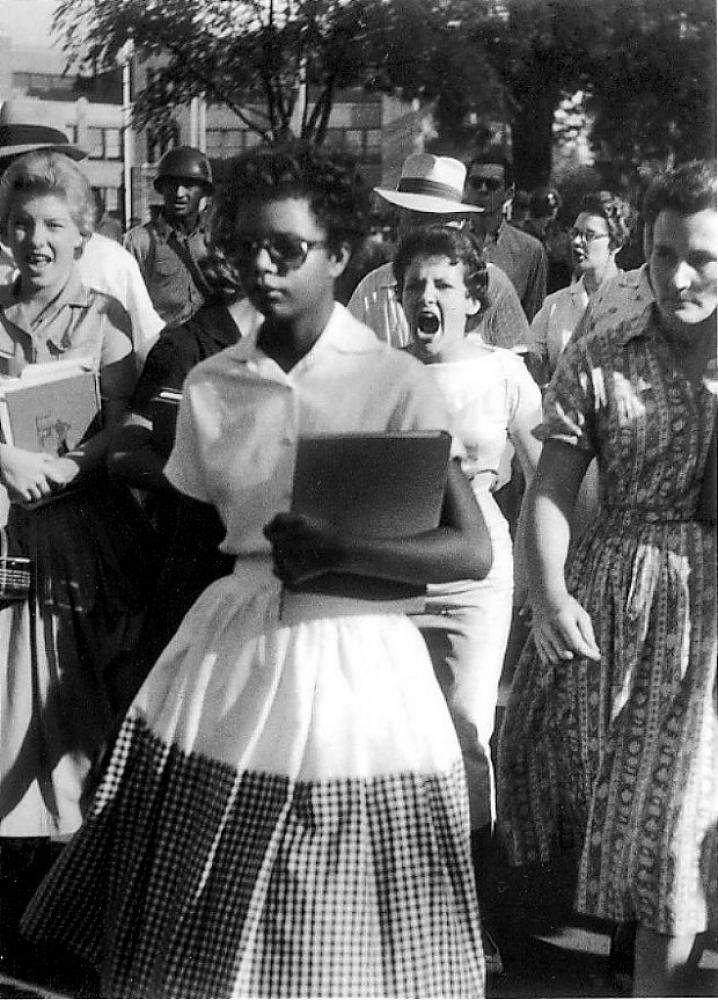Using Public Schools as Battlegrounds is Immoral
If state legislators were in the legal position of employers, teachers in many states could sue for creating a hostile work environment.
And students could sue for legislators doing nothing to ameliorate and much to inflame a hostile learning environment.
A good teacher is a gem. A great teacher is priceless. And yet they are daily trampled underfoot by warring versions of what American has been, is, and should be.
Underpaying teachers is degrading. Raising their pay is necessary but not sufficient. Yes, there is a money problem but that is not the total problem.
Some legislators simply want to abolish public education, often for religious or political reasons. I think public education is one of the greatest ideas ever enacted in America. A democracy needs educated citizens who can reason, converse and argue, and with enough virtue and compassion to recognize a democracy requires something like the Golden Rule if the aspirations toward freedom and equality are to be realized.
Ah, but many legislators in a state such as Oklahoma will quickly say “America is a republic, not a democracy,” which is to repeat a John Birch Society and southern Lost Cause talking point. Rule by the allegedly knowing few is hindered by public education.
People of my generation remember nuclear attack drills: huddling under desks or in concrete-block hallways. The fear those drills engendered is nothing like the level of toxic pain inflicted on today’s classrooms because of the threat of gun violence. Anywhere. Anytime.
Hostile work and learning environment.

Hazel Bryan (right and behind) and other segregationists protest as Elizabeth Eckford (left) attempts to enter Little Rock High School in 1957.
I know, it is not just legislators who are to blame. We’ve all seen pictures, and some of us are old enough to remember, white mothers spitting on and screaming at Black children walking into previously segregated schools. Some parents of this ilk laid down their children in front of buses. Well, we see similar uncivil behaviors today at school board meetings, including in Tulsa.
But citizen righteous anger is ginned up by legislators who want an angry base to keep themselves in office. Give public money to private schools, in the form of vouchers, and call it choice rather than “let’s starve public education to death.” Let’s all ban books!
Build a big bonfire and throw in everything that criticizes things as they are. Start with the history books, then novels, then graphic comics, then most of the social sciences. Oh, and surely we must police the examples used in math books where liberal commies sneak critical race theory into the texts. And the new, fabulous, humbling, awesome images coming from the Webb telescope: I’m sure someone is figuring out a way to tag those images so that a text can’t say “we’ve now seen back in time to within less than a billion years after the universe exploded into existence,” for that number contradicts the sincere religious belief that the universe was created in 4004 BCE.
When the &*%$ will we stop using our children and the people we entrust our children to for seven or more hours per day as the battleground for the problems we adults cannot solve or even address ourselves? Racism. Battles over gender and sexuality. How we tell American history, especially what we include and exclude which is the pretext for WHOM we include and exclude.
And then we surround the schools with 400 million guns and promulgate a version of the Second Amendment that creates enormous tears in the social fabric and, every time an angry man invades a school and kills, more blood spilt from the nation’s heart.
How do we call a truce on using the schools as battlegrounds? I don’t know. I hope somebody does, because the injuries we adults are causing to our children and their teachers is immoral, unethical, and unjust. And those of us who claim a religion within the Abrahamic traditions know this: injustice invites judgment.
Dr. Gary Peluso-Verdend is president emeritus at Phillips Theological Seminary and is the executive director of the seminary’s Center for Religion in Public Life. The opinions expressed in this blog are those of the author. Learn more about the Center’s work here and about Gary here.


Comments are closed.